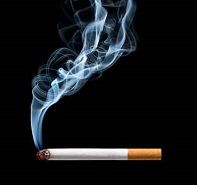Article
Kids Exposed to Tobacco Smoke More Likely to Develop A-Fib
Author(s):
Secondhand smoke exposure in utero and in childhood puts people at higher risk of having atrial fibrillation later in life, San Francisco researchers found.

Smoking cigarettes is known to cause atrial fibrillation (AF) in smokers.
A research team from the University of California, San Francisco found that data in the Health eHeart Study show that children exposed to secondhand tobacco smoke--even in utero--are more likely to develop AF.
That exposure could come also as an adult and in the workplace.
Mark Pletcher, MD, MPH and colleagues looked at data for 4,976 participants in the heart study and found 11.9% or 593 people said they had AF.
These AF patients were more likely to have had such an ex posure.
"After multivariable adjustment for potential confounders, having had a smoking parent during gestational development (OR 1.37, 95% CI 1.08—1.73,
= .009) and residing with a smoker during childhood (OR 1.40, 95% CI 1.10—1.79,
= .007) were each significantly associated with AF," the researchers wrote in Heart Rhythm. .
Both positive associations were more pronounced among patients without risk factors for AF (
values for interaction <.05).
PPP
The finding is important because secondhand smoke exposure in early life is a "potentially modifiable risk factor for the development of AF," they concluded.




